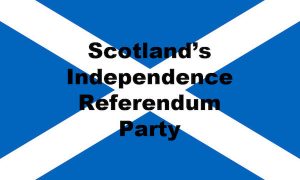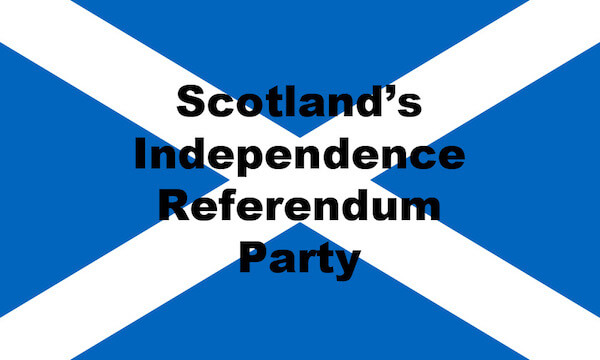 A new legal appeal for UK permission to hold second referendum on Scottish Independence could remedy the SNP’s failure to put Scotland’s Independence first by not backing Theresa May’s British Brexit in return for Westminster’s permission to hold second Scottish Independence Referendum in 2019.
A new legal appeal for UK permission to hold second referendum on Scottish Independence could remedy the SNP’s failure to put Scotland’s Independence first by not backing Theresa May’s British Brexit in return for Westminster’s permission to hold second Scottish Independence Referendum in 2019.
A valid and grounded legal appeal to the Court of Session in Edinburgh – and possibly thereafter on appeal to the UK Supreme Court in London – could force British prime minister Boris Johnson to let the SNP hold a second Scottish Independence Referendum
This new appeal – which some elements within the SNP are only now belatedly mulling over – is ironically based on the legal precedent set by the former British Prime Minister David Cameron, who first signed the Edinburgh Agreement with Alex Salmond, then SNP leader and First Minister of Scotland.
The irony is that Cameron only agreed to grant a Section 30 power to the Scottish Parliament to hold the 2014 Independence Referendum in the overly-smug belief that the British Unionist parties (including his own) would overwhelmingly defeat the ‘Yes To Scottish Independence’ campaign.
While the pro-Unionist campaign won – by 55% to 45% – it was not the ‘crushing defeat’ which Cameron and the Tories had expected.
Since then, there has been Brexit – where Scotland voted overwhelmingly against leaving the EU (by 62% to 38%).
And this is the ‘new intervening factor’ on which the political – and now prospective legal – case for an appeal against British prime minister Johnson’s refusal to grant a Section 30 order ‘granting’ or ‘permitting’ the Scottish Parliament to hold a new, second referendum on Scotland’s Independence, should now be based.
The legal basis for this appeal – which our well-funded and learned friends in the SNP should raise immediately – is founded on the following grounds;
- ‘Novus actus interveniens’ is the Latin legal-short-hand term for an intervening unforeseeable event (ie Scotland’s overwhelming vote to remain in the EU and to reject an England-led Brexit) which adversely impacts on a defendant’s case (the ‘defendant’ in this prospective case being the UK Government/ British prime minister Johnson) and
- Precedent;
Any first-year law student knows that establishing ‘precedent’ – ie a case which is based ‘on all fours’ with a previously-decided case – will win.
In this case (ie ‘First Minister of Scotland / Sturgeon v UK prime minister/ Johnson) the precedent was established by a preceding British prime minister when David Cameron decided that there was a valid (legal) case for granting a Section-30 order enabling the Scottish Parliament to hold the 2014 Independence Referendum.
The insufferably smug presumption by Cameron that he/ the British Unionist campaign against Scotland’s Independence would win establishes this vital ‘precedent’ – ie Cameron/ UK prime minister had no valid legal ground for refusing to grant the Scottish Parliament the Section 30 power.
Ergo, if Cameron had no valid legal ground as UK prime minister for refusing to grant a Section 30 order to the Scottish Parliament to hold the 2014 Scottish Independence Referendum, it logically follows that Johnson/ UK prime minister’s refusal to grant a new Section 30 order to the Scottish Parliament to hold a 2020 Scottish Independence Referendum is based entirely on ‘political’ – and therefore, not ‘legal’ – considerations.
Hence, Johnson’s refusal will be seen for what it is – an act of political spite but also the ‘unreasonable’ (and thereby, illegal) political decision it self-evidently is.
Mark R. Whittet (LLB, BA) leader of Scotland’s Independence Referendum Party, said: “Scotland has the moral and democratic right – and authority – to hold a referendum on her own national constitution.
“Unlike in England, Scottish political sovereignty rests with the people – not the prime minister or the British parliament.
“This new legal appeal route offers the real prospect of enabling the people of Scotland to express their democratic and constitutional right – and will help absolve the SNP for its failure to put Scotland first when it had the numbers in the Westminster parliament to extract a Section-30 order from the then British prime minister Theresa May in return for granting her a full England Brexit.”
See also:
https://tinyurl.com/y9cvwp9b
[Open in new window][Copy to clipboard]
Or preview TinyURL:
https://preview.tinyurl.com/y9cvwp9b
[Open in new window]
Scotland’s Independence Referendum Party
The primary goal – and number one objective in the constitution of Scotland’s Independence Referendum Party – is to achieve political Independence for Scotland.
We aim to do so by helping to bring about a new/ second Scottish Independence Referendum in light of the entirely-changed political and constitutional landscape following the UK Brexit vote.
We shall do this by providing a meaningful, valid, SECOND choice/ chance to vote for Independence-supporting MSPs in elections to the next Scottish Parliament; ie SNP party members/ voters can vote ‘first’ choice for SNP on the ballot paper, and then vote ‘second’ choice for Scotland’s Independence Referendum Party on the ballot paper.
This gives two choices/ chances/ votes in favour of Scotland’s Independence (instead of the present 1/ SNP – and reduces the ‘stray’/ use-less ‘second’ vote going to any other British Unionist party.
Despite the use of the word ‘Scottish’ in front of their names, the Liberals, Tories and Labour are all single, British Unionist parties and are all controlled from, and based in, their London head offices.
Scotland’s Independence Referendum Party is not competing with the SNP; rather, we want to work in a progressive alliance with them and all other groups that support Independence for Scotland.
